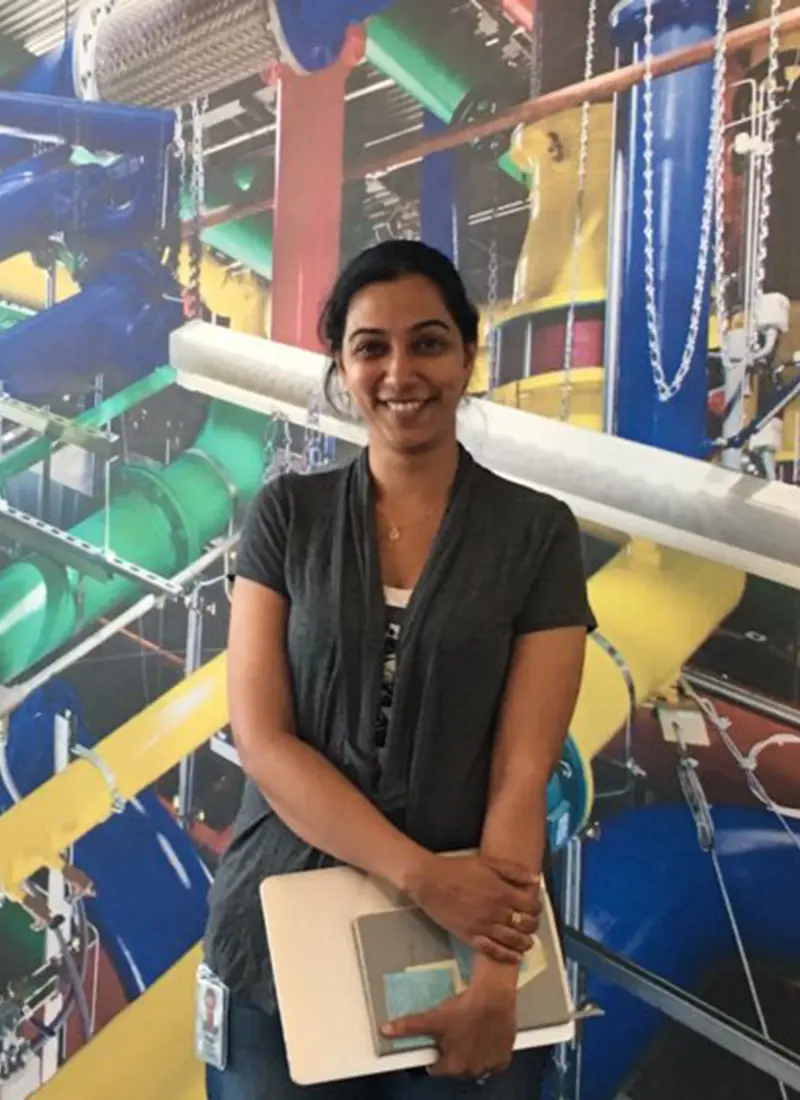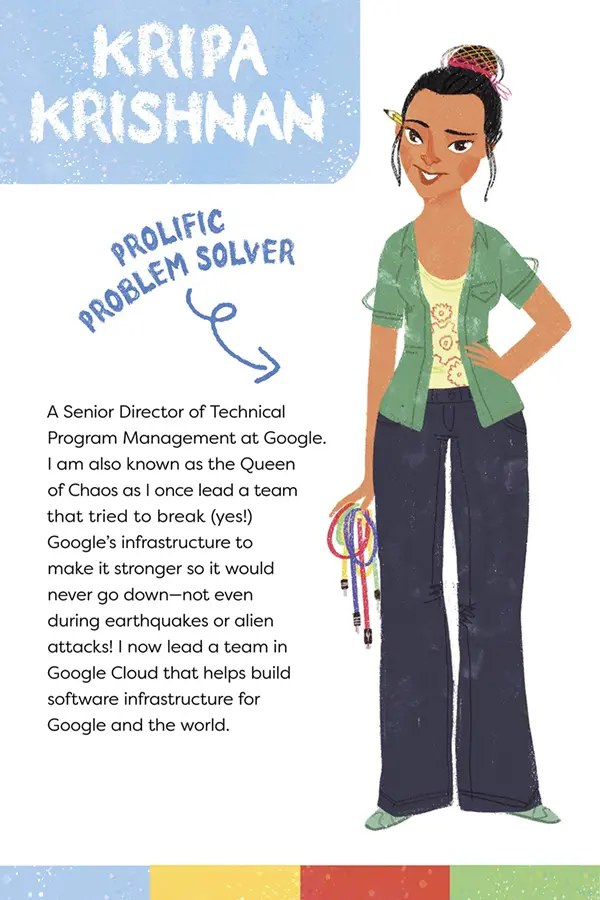Kripa Krishnan, Management Information Systems

The MIS degree gave me a little bit of tech, a little bit of science, a little bit of business.
Kripa Krishnan ’02 is suddenly famous, thanks to a children’s book by a Google colleague. Krishnan is one of four senior women at Google featured as “sheroes”—female superheroes— in the book “Ara the Star Engineer.” Komal Singh, an engineering program manager, wrote “Ara” after her 4-year-old daughter told her, “Engineers are boys.”
At the book launch last fall, Singh, Krishnan and the other women were mobbed by 150 children and their parents. “They were just over the moon, they were so gaga to meet us,” Krishnan says. “The children are so starved for role models that they treated us like celebrities.”
In the book, Krishnan, whose fictional title is “Prolific Problem Solver,” helps Ara and her robot friend figure out whether they can count all the stars in the sky. They can’t, but that’s part of the lesson. “She fails—and someone teaches her to pick herself up and try again. That’s so important,” Krishnan says.
Krishnan knows all about trying again. She grew up in Chennai, India, and went to college to become a doctor. At the same time, she sang and played keyboard in a rock band, ran her own theater group and even designed clothing. “My heart was not in college at all,” she says. “After 3½ years, I had a real chat with my folks because I wanted to do performing arts. And they supported me.”
Krishnan studied theater at a small college in Utah for a semester, but found it too small and rural. She transferred to UMass Lowell because the university allowed her to take seven-plus courses each semester and she needed to finish her degree quickly. She sampled theater, math and business—and ended up with a degree in management information systems. “The MIS degree gave me a little bit of tech, a little bit of science, a little bit of business,” she laughs. “Focus was not my strength.”

An introductory computer science class with Prof. Jim Canning—now dean of the Honors College—changed Krishnan’s career path, she told him in a recent email: “My whole life goal was to avoid tech like the plague—and look what you’ve done!” Previously, she’d found tech boring, but Canning’s class was different. He didn’t teach his students how to write code; rather, he taught them what happens inside the computer in response to coded commands. Krishnan also discovered that she likes “geeky people,” she says: “Their humor is dry, and they’re really bright. I just felt at home in computer science.”
Krishnan went on to earn a master’s degree in MIS at the University of Arizona, supporting herself with a job as a systems administrator in the university laboratory. She also helped a doctor set up a telemedicine link with Kosovo. After graduation, she applied for a job with Google, but she didn’t expect to get it, so she started on a second master’s degree in policy. When Google called her for a series of interviews, “I freaked out,” she says. “I refused to go because I didn’t want to be rejected by Google, so literally my advisor had another student shove me into a car.”
Google hired her as a technical program manager, and she rose from there, becoming head of disaster recovery testing for a decade. As Google’s “Queen of Chaos,” Krishnan led a team of engineers who deliberately tried to crash Google’s infrastructure so they could figure out how to fortify it against everything from earthquakes to alien attacks.
Krishnan was appointed senior director of operations for Google Cloud last year. She says she owes much to her mentors, from academics like Canning to higher-ups at Google—but that if universities and companies want to get more women and underrepresented minorities into STEM jobs, they need to offer more diverse role models.
“People become what they see. So if kids cannot see someone they can relate to in positions of power and success, they’re going to shut off that path,” she says. “We need more women role models.”
Now, she is one of them.
“‘Ara the Star Engineer’ represents a turning point for me,” she wrote to Canning. “It turned me from someone who has always looked for role models to someone who is a role model, and I never thought of myself that way. In either case, all of this began with you, and I wanted to say, ‘Thank you.’”

